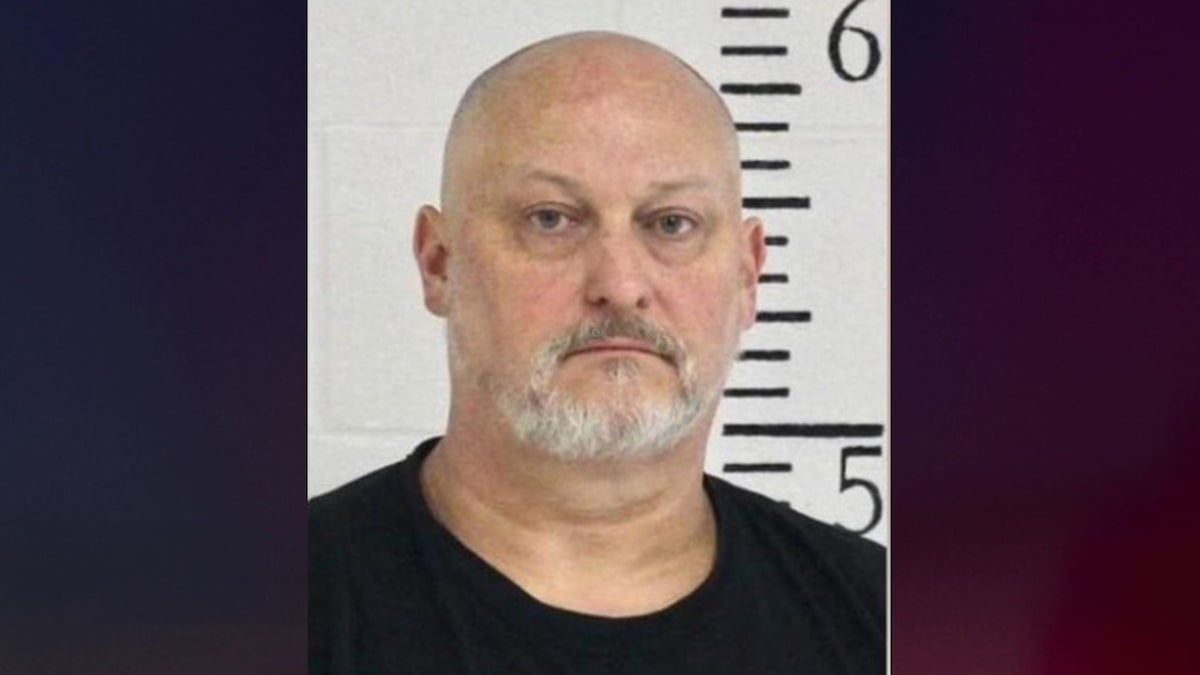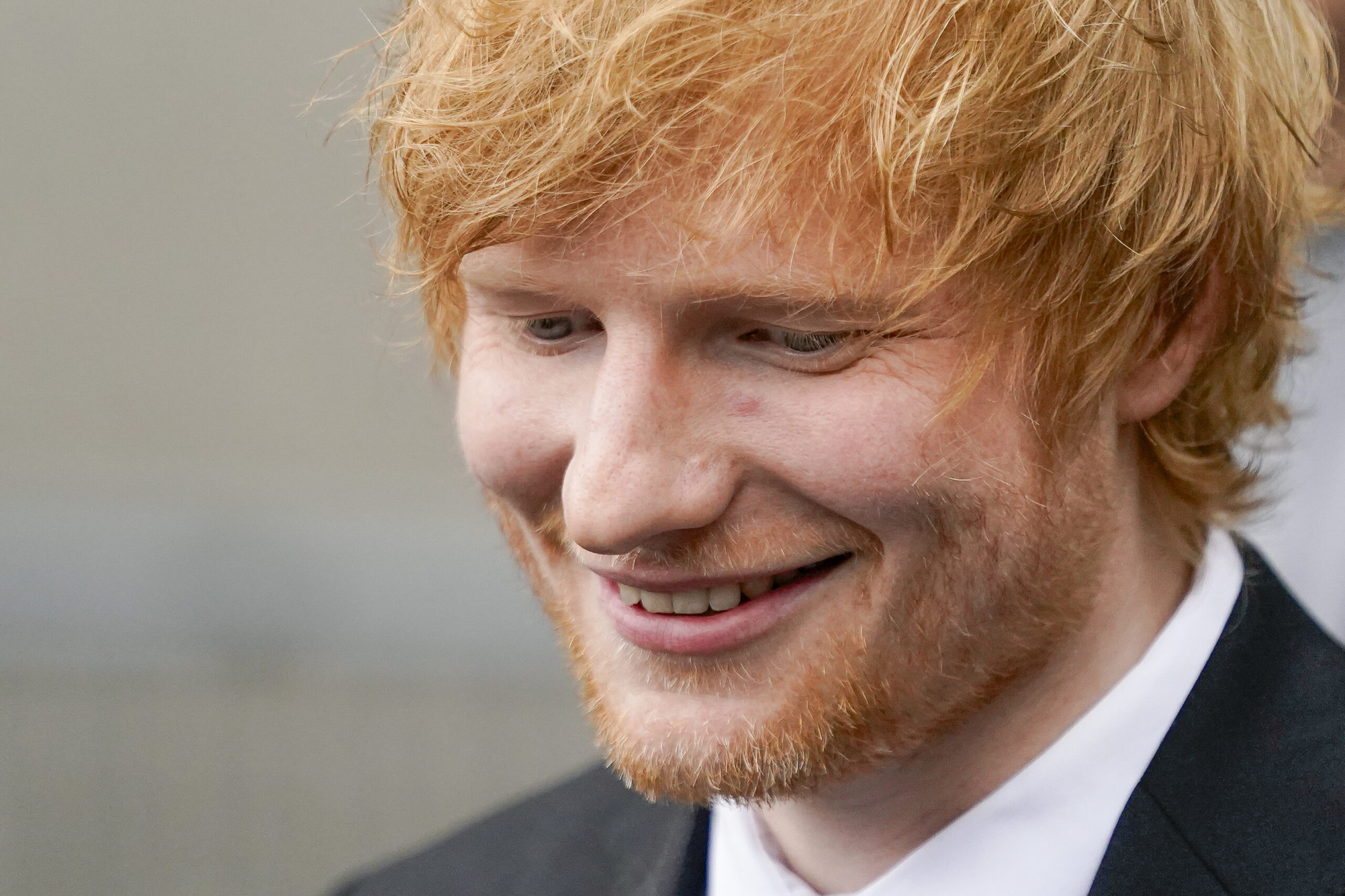
(AP Photo/John Minchillo)
Last week, Ed Sheeran treated many onlookers to an impromptu concert, perched on top of a parked car and serenading countless fans in downtown Manhattan. He definitely has reason to sing a few happy tunes, thanks to a verdict rendered in his favor in a $100 million copyright litigation against him this past Thursday.
In just around three hours of deliberation, a jury in the Southern District of New York court in lower Manhattan ruled that Sheeran created his 2015 smash love song “Thinking Out Loud” independently and did not copy Marvin Gaye’s legendary hit “Let’s Get It On,” released decades earlier in 1973. The estate of late singer Ed Townsend, who co-wrote the song with Gaye, filed a suit against Sheeran back in 2017, claiming that Sheeran copied the Gaye classic.
The closely watched and unique copyright infringement trial had many critical moments, including testimony from musicology experts, the plaintiff’s team playing what they deemed a “smoking gun,” which was a fan video of Sheeran mashing “Thinking Out Loud” and “Let’s Get It On” at a live show years before the lawsuit was filed, and even Sheeran himself singing and playing guitar on the stand in order to convey his songwriting process to the jury.
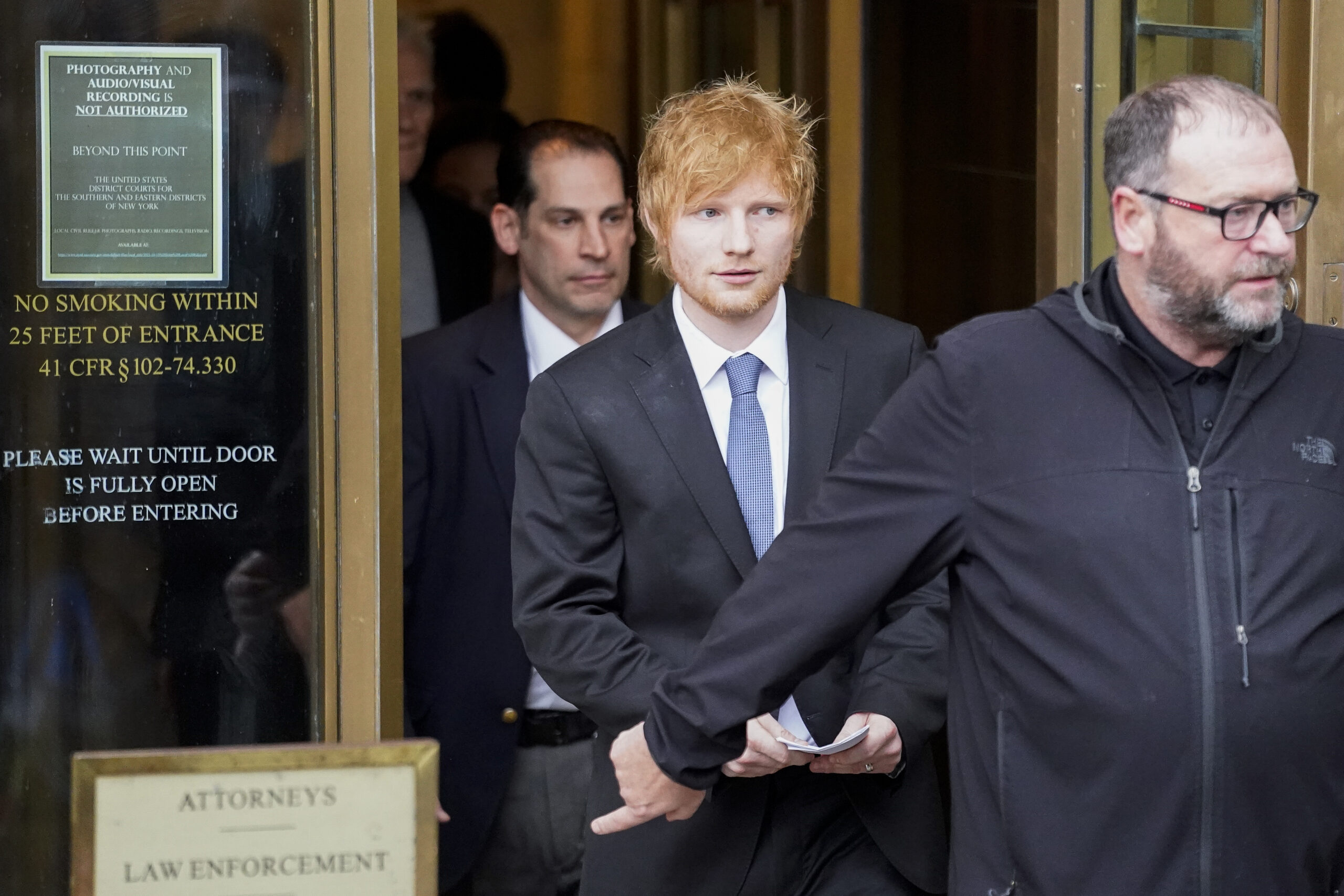
(AP Photo/John Minchillo)
Attorneys for the plaintiffs attempted to argue one of the four chords Sheeran plays in the beginning of his song was similar to Gaye’s hit, and that Sheeran lifted Gaye’s harmonic rhythm and certain melodies as well. In return, Sheeran’s counsel told jurors that any similarities in chords and rhythms were because both artists used the same “basic musical building blocks” available in Western popular music, which is only comprised of just 12 notes. In the end, the jury heard Sheeran’s and his witnesses’ testimony loud and clear, and voted in his favor.
Sheeran appeared outside of the courtroom on Thursday to issue a statement and express his gratitude to the jury for their decision. Sheeran, who missed attending his grandmother’s funeral in Ireland due to his required presence at this trial, was thankful for the verdict, but also expressed concern at the growing frequency in which copyright infringement claims were being brought in the music industry. In his lengthy statement which he read aloud, he stated: “I want to thank the jury for making the decision that will help protect the creative process of songwriters here in the United States and all around the world… This seems so dangerous to me: both for potential claimants who may be convinced to bring a bogus claim, as well as those songwriters facing them.”
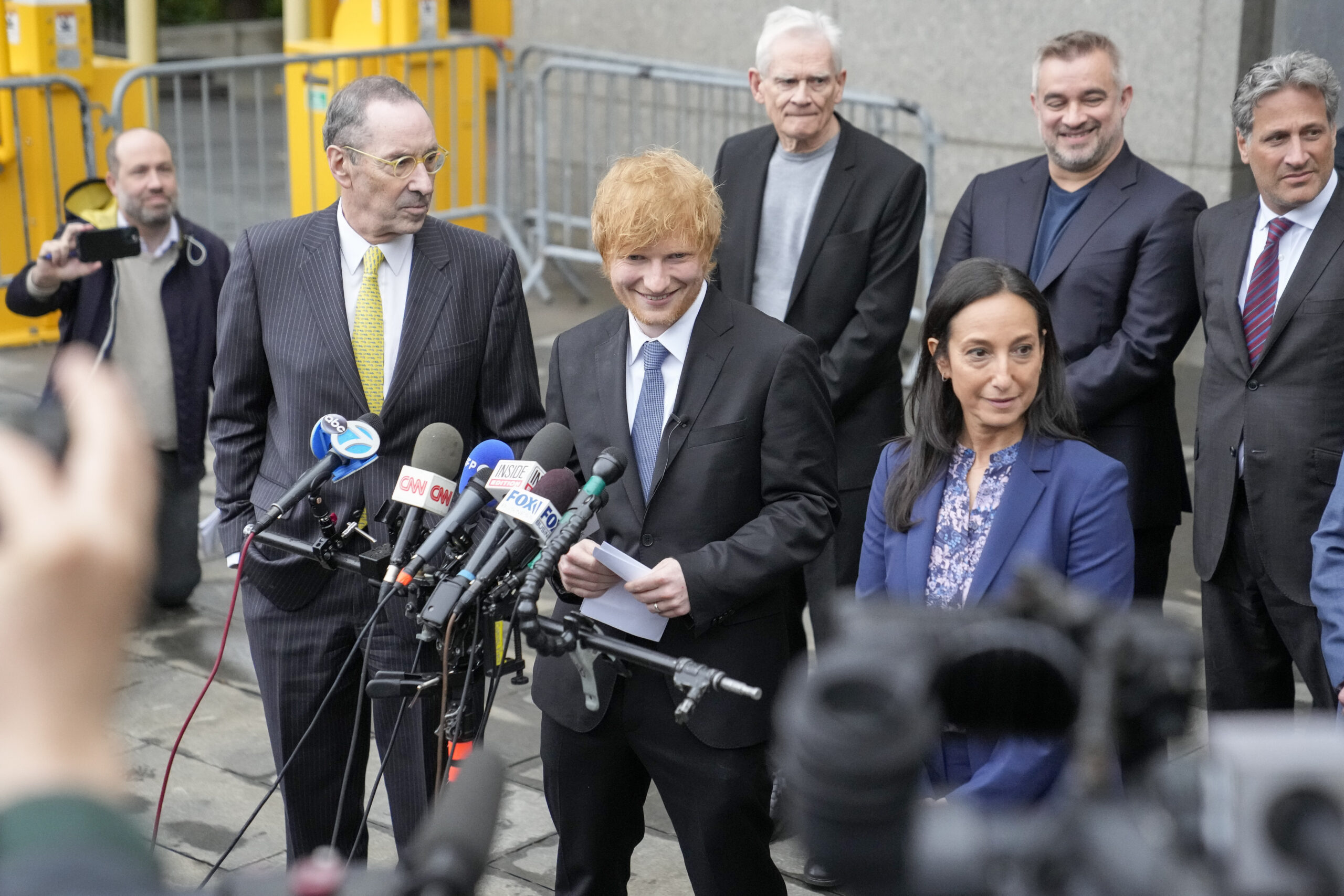
(AP Photo/John Minchillo)
Indeed, Sheeran is hardly the first artist to face what many deem an insubstantial copyright case in the music industry. These types of cases are hardly novel, with some going back even decades, yet many in the business have seen a dramatic increase in recent years, with some of the most famous artists in the world having to defend their creative process and original work.
One of the first to pave the way was the lawsuit filed by David Bowie and the group Queen against rapper Vanilla Ice, alleging his 1989 hit “Ice Ice Baby” lifted parts of the two artists’ iconic 1981 song, “Under Pressure.” The suit settled out of court, with Bowie and Queen later being given songwriting credit for Ice’s hit. In years since, we’ve seen everyone from Robin Thicke and Pharrell Williams, who lost a 2018 case against Marvin Gaye’s estate, who alleged they copied Gaye’s 1977 single “Got to Give It Up” for their 2013 hit “Blurred Lines,” to Led Zeppelin, who won a copyright infringement case in 2020 after musician Randy California accused them of copying from his song “Taurus” for their iconic “Stairway to Heaven,” to Taylor Swift, who in 2022 “shook off” a copyright lawsuit that was filed and then later dropped by two songwriters, Sean Hall and Nathan Butler, claiming she plagiarized their materials for her 2014 hit “Shake It Off”.
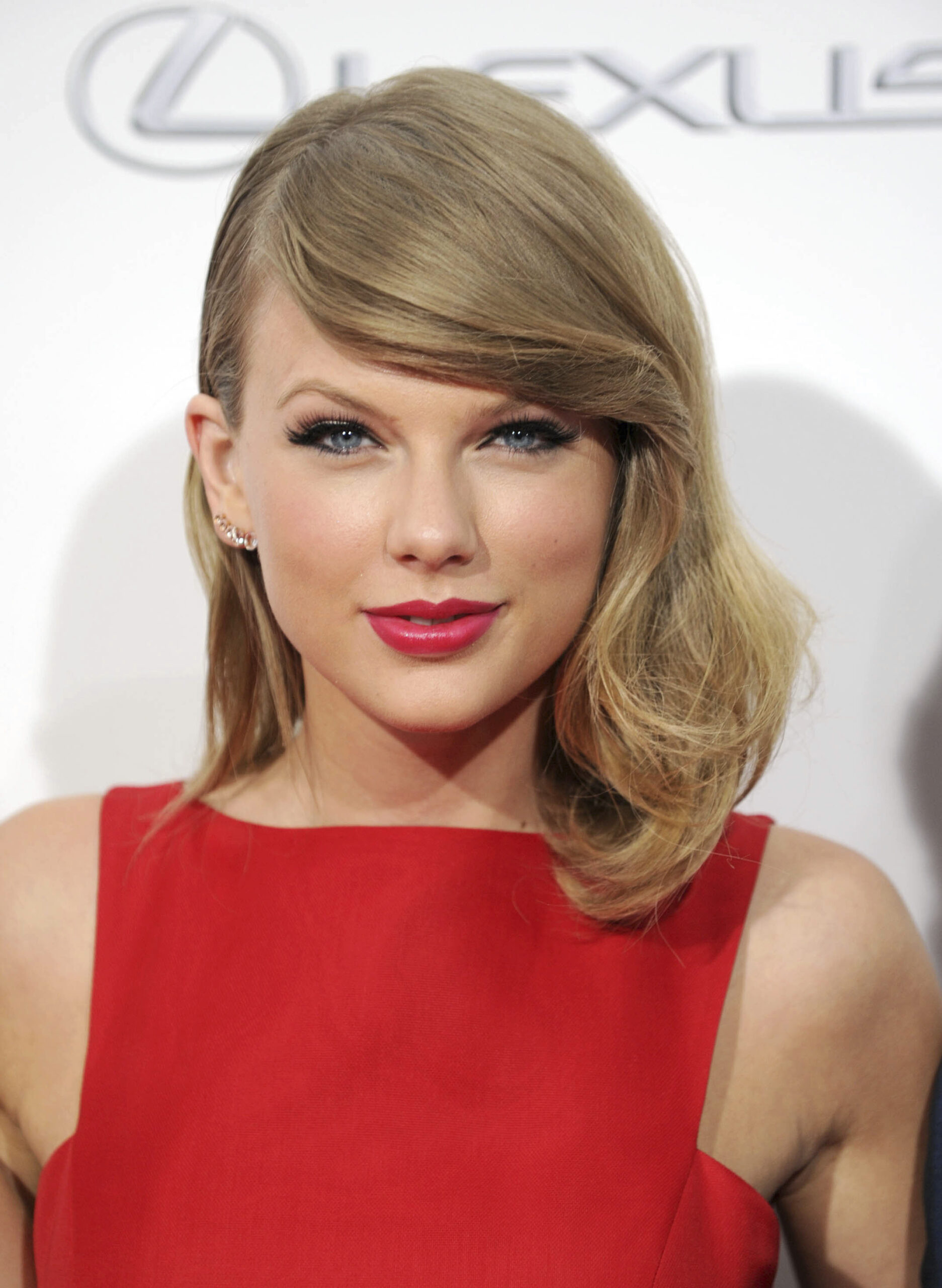
File Photo by: zz/GWR/STAR MAX/IPx (NYC)
Even Sheeran himself is no stranger to such claims, after prevailing in April 2022 against a case filed by artist Sami Switch regarding his 2017 hit “Shape of You.” Now in May 2023, Sheeran found himself in court again, and while he and many artists have won such infringement claims, this recent stream of litigation has still posed all kinds of problems to them.
What’s Behind the Recent Uptick in Infringement Lawsuits?
So what has led to this latest string of copyright infringement cases in the music industry? The reasons are plentiful. Firstly, the way music is created and distributed is vastly different today from how it was 20 years ago – rather than relying on record labels and the traditional album structure, now many artists can release their own materials on streaming platforms like Spotify or YouTube. Having more music released on a rolling basis (Spotify specifically finished out 2022 with over 100 million tracks in its catalog) means more artists out there looking out to see what claims they could potentially make against acts who they believe used their materials.
Secondly, there is not a huge burden in a legal sense of what a plaintiff in an infringement case needs to prove in order to file a suit. In fact, in U.S. federal law, as long as a complaint contains a sufficient set of facts, the courts must accept such facts as true and resolve any issues in a light most favorable to the plaintiff. That alleviates a considerable amount of proof that a person intent on suing needs to have when filing their case.
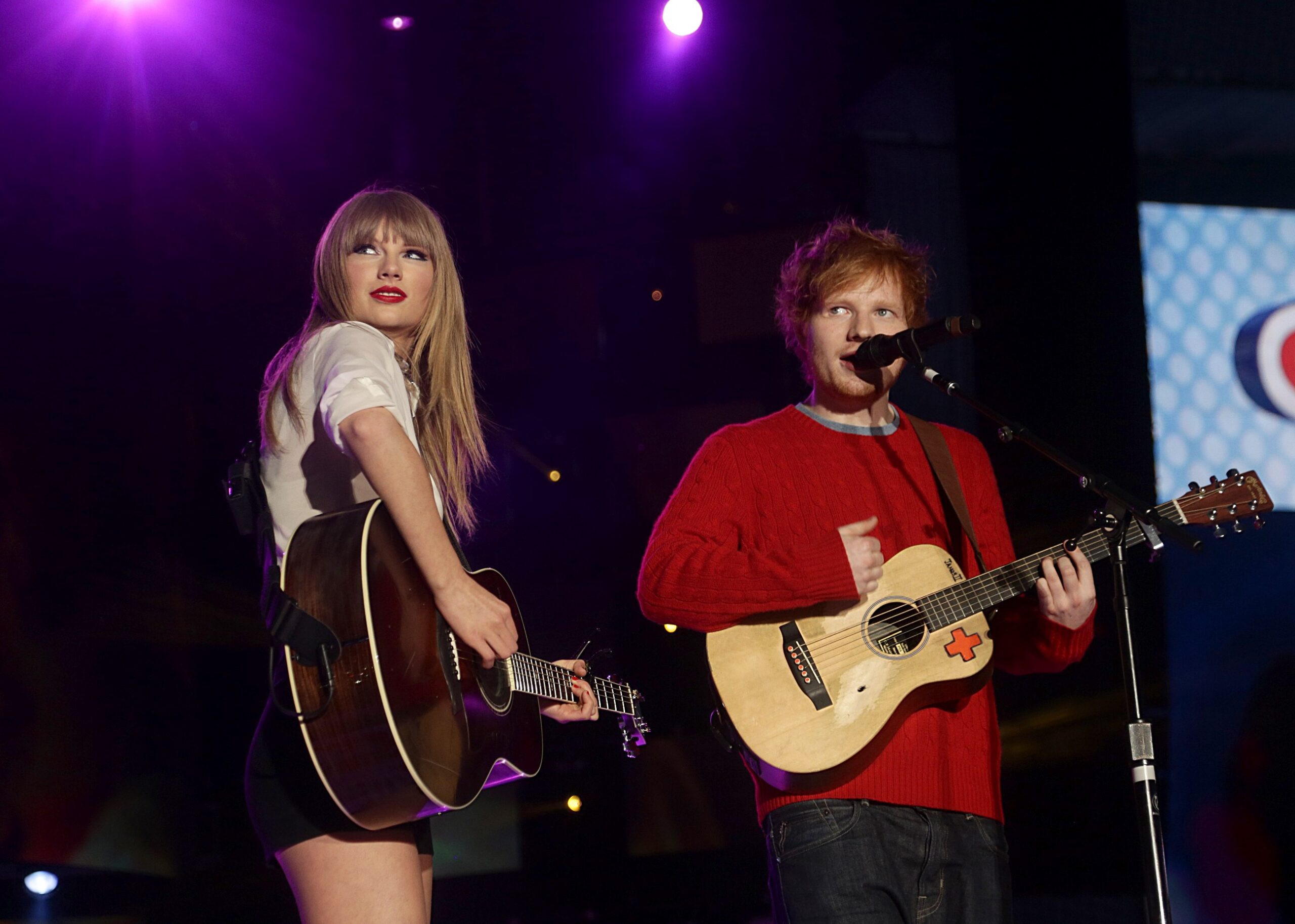
URN:16759889
Thirdly, many times these sorts of copyright infringement claims involve aspiring songwriters and singers who many say are aiming to obtain more publicity and a quick payout by filing cases against prominent and wealthy artists, like Swift or Sheeran. Many of these plaintiffs assume these kinds of defendants will go for a quick settlement to resolve the matter, yet artists are now making it clear they are not afraid of pushback and fighting it out. Even Sheeran himself stated after his verdict was rendered on Thursday, “I am not and will not allow myself to be a piggy bank for anyone to shake.”
How Defendants Are Fighting Back
In April 2022, Sheeran released a statement after prevailing in the “Shape of You” infringement lawsuit filed by Switch, expressing concern over the recent slew of infringement cases. “It’s really damaging to the songwriting industry. There’s only so many notes and very few chords used in pop music,” he said.
This illustrates the feeling many artists have and why so many have decided against a swift settlement and to face the music in a courtroom battle. Many believe it’s well worth the fight, as infringement suits pose considerable damage for artists, even if they end up prevailing. Aside from costs and having to spend a considerable amount on legal fees, cases like this usually take years to unfold. Even if money poses no problem to major artists like Swift or Sheeran, time spent may be another issue. The “Thinking Out Loud” suit against Sheeran was filed over six years ago in 2017, with COVID-19 and typical legal delays pushing the trial to this year.
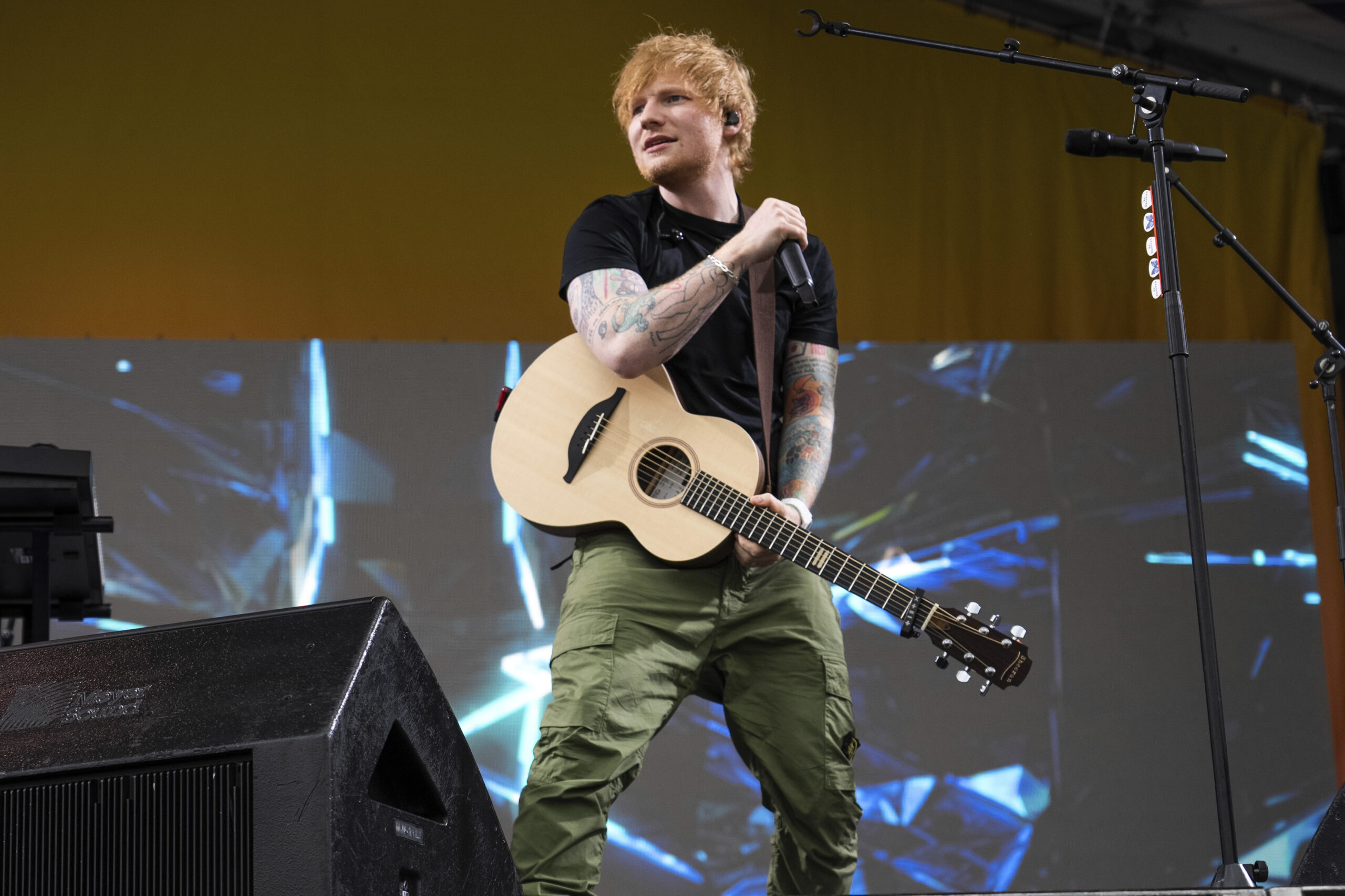
(Photo by Amy Harris/Invision/AP)
Yet other serious considerations are also at issue: having filed claims like this poses reputational harm to artists, even if they end up winning. In any profession, whether you are a musician, writer, or architect, facing accusations that you created your life’s work and career off of copying others is not an easy allegation to overcome. For artists like Swift and Sheeran, who write or co-write nearly all of their work, having to disprove claims that their lyrics were taken from other people’s work places them in an unfair position, even if they do prevail in such cases, which they have thus far.
Additionally, many say that allowing claims like this to continue without fighting back will make the future artistic process for musicians even more difficult. When an artist is creating their next song, the typical things on their mind are shaping the lyrics and crafting a melody, yet should more cases like this proceed, worrying about how to avoid potential lawsuits can impose on the creative process. As Sheeran stated, there are only 12 musical notes available to be used when creating a song, and given how many artists turn to other time periods and musicians for inspiration, there is sure to be similarity in people’s overall works. Many writers and creators in general can likely agree that worrying about how your work will be perceived while forming it only impedes the creative undertaking.
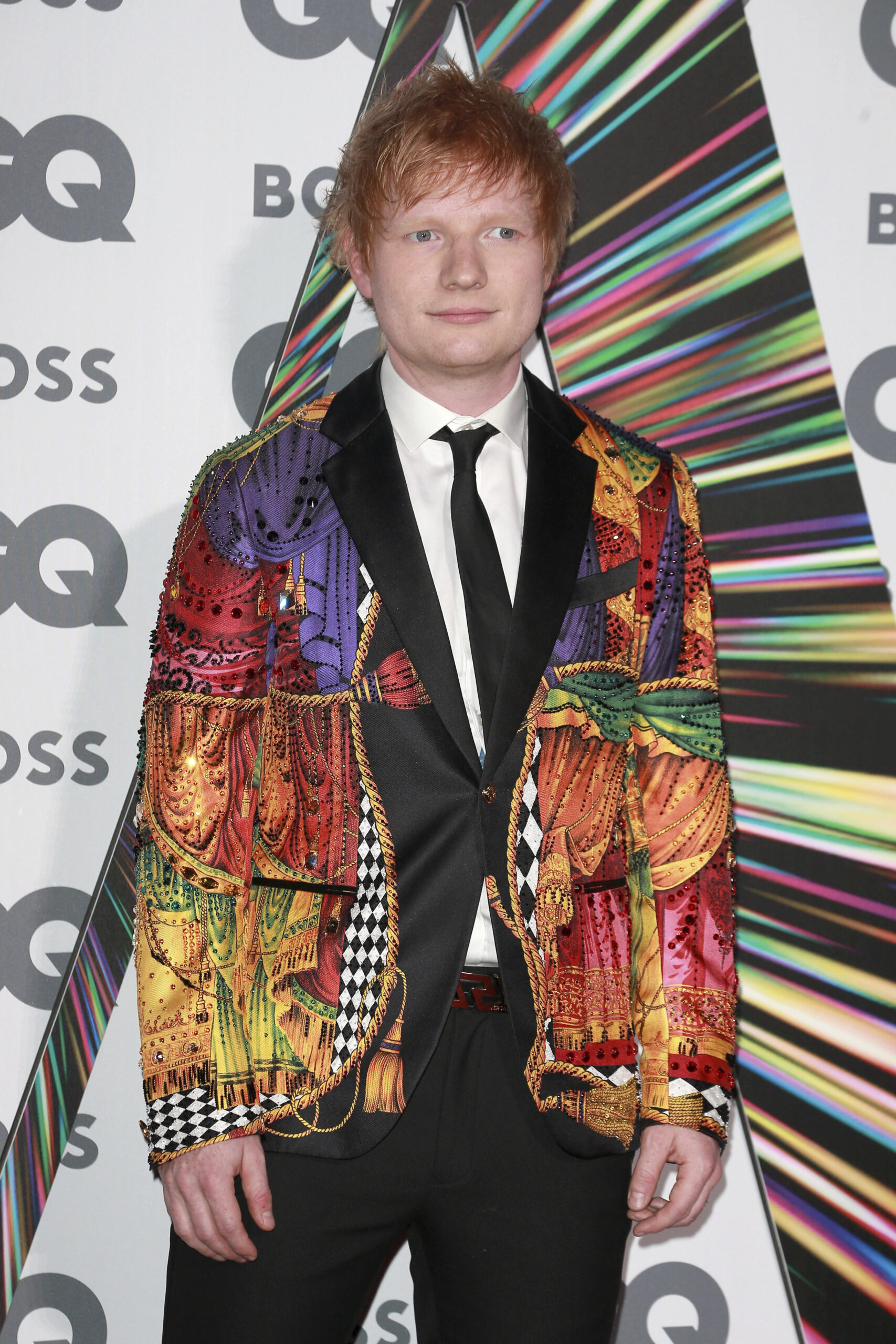
(Photo by Fred Duval / SOPA Images/Sipa USA)(Sipa via AP Images)
Finally, enabling baseless infringement claims to continue will surely create a precedent in the legal system that promotes significant settlements as a form of resolution or a years-long courtroom battle for a high number of cases. As Sheeran stated in his statement published to Instagram following his April 2022 courtroom win, “I feel like claims like this are way too common now and have become a culture where a claim is made with the idea that a settlement will be cheaper than taking it to court, even if there’s no base for the claim. It’s really damaging to the songwriting industry.”
What’s to Come
With a recent win like this, many in the music industry are wondering what kind of an impact it will have on the profession and the members in it. Firstly, this major win is sure to serve as a potential deterrent for other artists thinking of filing frivolous infringement suits, as the battle bar for plaintiffs to prevail in court has been considerably lifted. Further, this will likely provide a sigh of relief for artists who can still explore the songwriting process with freedom, as even Sheeran’s attorney Ilene Farkas opined, stating before the verdict that if a decision was rendered against her client, that “Creativity would be stifled for fear of being sued.”

(Photo by Arthur Mola/Invision/AP)
Finally, this draws a line in the sand in the ever-changing musical landscape, which has shifted from the traditional album era of the 21st century to a system dependent entirely on streaming. With so much content now being released on a more frequent scale, the risk of more resulting litigation was always likely, yet this decision will undoubtedly send a message to the music and creative community that claims will be taken seriously. That sentiment will hopefully prevent baseless cases from moving forward, but also carve out a space for legitimate copyright infringement claims to be heard. As Sheeran himself stated after the verdict: These claims need to be stopped so the creative process can carry on and we can all go back to making music. At the same time, we absolutely need trusted individuals, real experts who help support the process of protecting copyright.”
Have a tip we should know? [email protected]





